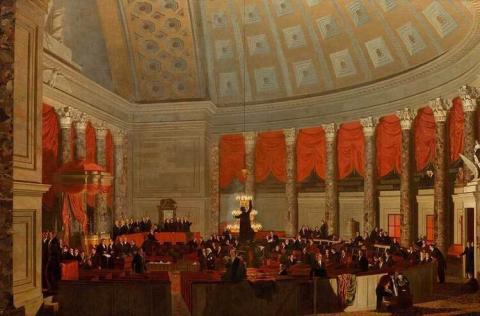
On December 2nd, 1823, President James Monroe submitted his annual message to Congress. What he wrote about Greece appeared innocent and straightforward. It was not.
In the context of prior cabinet discussions and also in the context of strong support for the Greek Struggle for Freedom among educated and politically active Americans, Monroe’s statements were quite ambiguous.
"A strong hope has long been entertained, founded on the heroic struggle of the Greeks, that they would succeed in their contest, and resume their equal station among the nations of the earth . . . . Their cause and their name have protected them from dangers, which ere this, might have overwhelmed any other people."
"The Greek Question" remains one of the little-known matters of American history that was both consequence of, and fuel for, America's growing support for the Greek Revolution. Congressional documents and underlying evidence is scant. Until now.
This year, we unveil some of the documents. Most importantly, we bring to light the actual Congressional Session on the matter, with a re-enactment by students of the Quo Vadis program at the University of Pittsburgh.
There will be a virtual lecture on the 23rd at 7 PM at https://pahellenicfoundation.org/March2024. The event will be broadcast at 7 PM on March 30th at: https://pahellenicfoundation.org/March2024.

